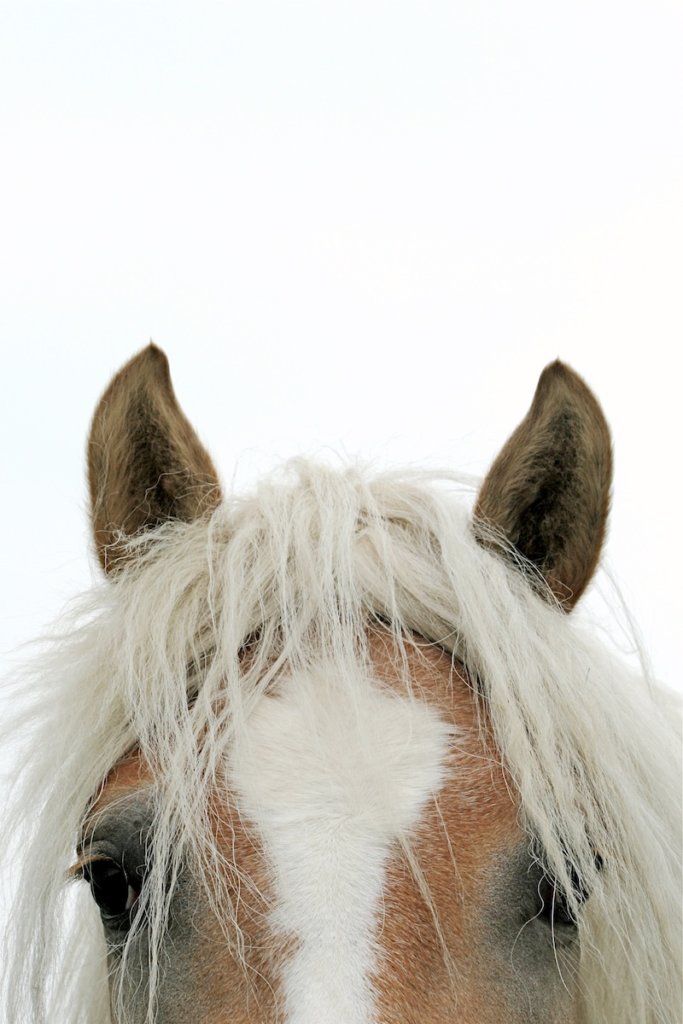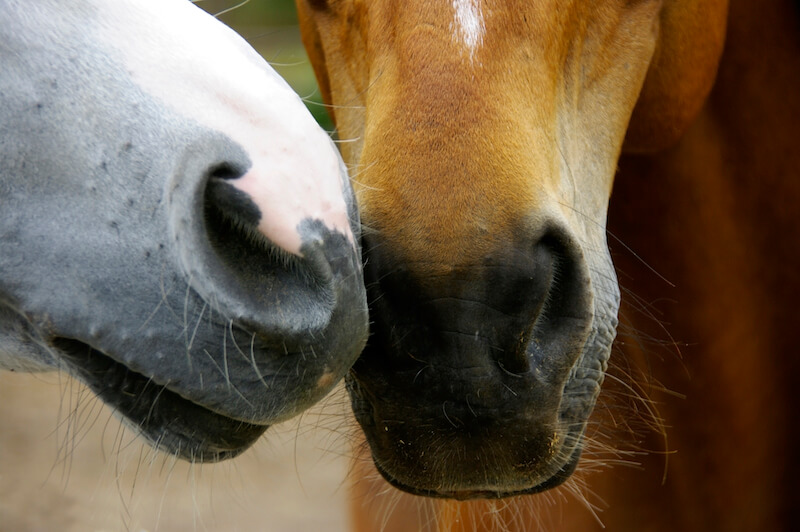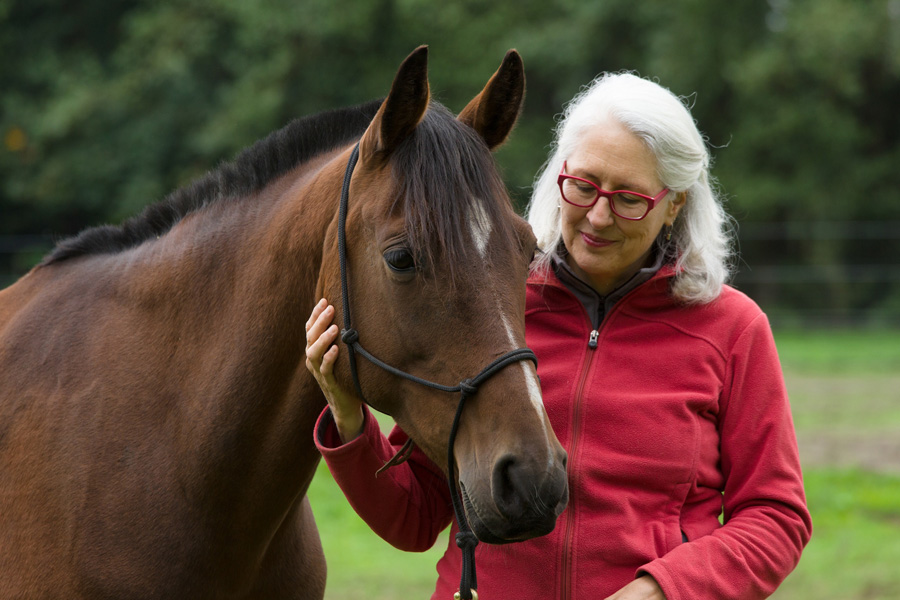How Horses Taste, Smell, and Hear
By Barbara Breckenfeld, LAMP

It’s well known that many animals’ senses are more acute than ours. Horses often stand heads up and ears pricked, listening, smelling, sensing with heightened awareness. What are they tracking?
For the horse (vision, hearing, smell, taste, and touch) are essential to their safety and well-being. Horses evolved on open plains with little vegetative cover as prey animals who survived by fleeing danger yet were too large to hide. Understanding this can enrich our relationships with horses through awareness of how acutely their senses inform their lives.
Do they Hear What We Hear?
Horses’ hearing apparatus is similar to other mammals, with the most mobile ears of any domestic animal. Moving independently—like antennae—they track sounds with nearly 180º rotation to focus and locate sounds.
Horses hear different pitches and volumes than people; higher pitches or frequencies as well as lower frequencies, and they sense even lower frequencies through their hooves and their teeth while grazing. Horses hear sounds from longer distances than people, even several miles away, depending upon wind. They hear and feel lower volumes than humans, while also being more sensitive to loud noises. Gunfire, vehicle backfire, diesel truck engine brakes can startle and spook. Police and military horses learn to overcome this in order to perform well.
Ever notice that horses are more unsettled in the wind? Wind can be noisy and carry more sounds from upwind while hiding other sounds downwind. Lots for a prey animal to absorb!
As creatures of routine, ordinary pre-feeding sounds trigger great anticipation: voices, vehicles, or doors, may cue physical activity or calling. Horses notice the subtle sounds of another horse moving closer and recognize gate sounds that signal time for greetings. Horses definitely discriminate between human voices and know words. Consider school horses who change gaits when the instructor spells T-R-O-T.
Some sounds worry horses including constant truck, trailer and road noise associated with trailering. Minimize noise by putting cotton in their ears before loading. Dislike of clipping around the head may be due to the vibration of the clippers or the clippers’ buzzing.
Scent as Information
Like dogs, horses rely on their sense of smell more intensely than people do, using smell—one of the most primitive senses—to recognize and learn about other horses, food, and environment. Is it safe or dangerous? Friend or foe?
When a horse lifts their nose curling their upper lip to trap odor in the nostrils, it’s called the flehmen response. It helps them learn and memorize new scents. The flehmen response often follows encounters with hormones in urine, sweat, or other body fluids. More common in some horses than others, medicines, blood, smoke from hot shoeing or cigarettes may also elicit it.

Smells provide detailed information for horses, to be gathered and processed in the huge surface area of their nostrils. Soon after birth, a mare licks her foal, the foal nurses, and their bond lasts through their lives. Horses mark territory with urine and manure. Stallions, especially, create stud piles and will cover a mare’s urine or manure with their own. Horses usually mark fresh stall bedding with their own scent.
Horses’ ability to differentiate between edible, unpalatable, and poisonous plants is learned from watching experienced horses. It is not an innate ability, and a hungry domestic horse often tries less palatable, sometimes poisonous plants. Wild horses seem to know what is good or bad to eat, and what or where to get the salt, minerals, or herbs they need. Similarly, foals eat their dam’s manure to supply their intestines with bacteria to digest forage.
The chemical sense of smell and taste are closely linked, as in people, through the tongue, throat, and palate. Horses’ taste buds, located on the tongue, naturally like salty flavors, learn to like sweet, but usually don’t enjoy bitter or sour. The close link between the senses of taste and smell helps the horse avoid disagreeable or harmful foods, tainted or unfamiliar water, or bitter medicines (even when disguised).
We love horses’ sensitivity because their senses are more acute than ours. Our beloved equines survive as prey animals using all their senses all the time to explore and monitor their world, expressing their curious, social natures as they go.

Barbara Breckenfeld of Movement in Balance does equine bodywork/massage and healing in the greater Puget Sound area, as well as offering her popular “Bodywork for Horses” clinics. She is nationally certified by NBCAAM, licensed as a Large Animal Massage Practitioner (LAMP) in Washington State, and an Equine Structural Integration Practitioner certified by the Equine Natural Movement School. Barbara became a horsewoman in 1993 when a handsome dapple-gray won her heart and introduced her to the fundamentals of dressage. Contact Barbara by email [email protected], call 425-260-0784, or visitwww.movementinbalance.com.





